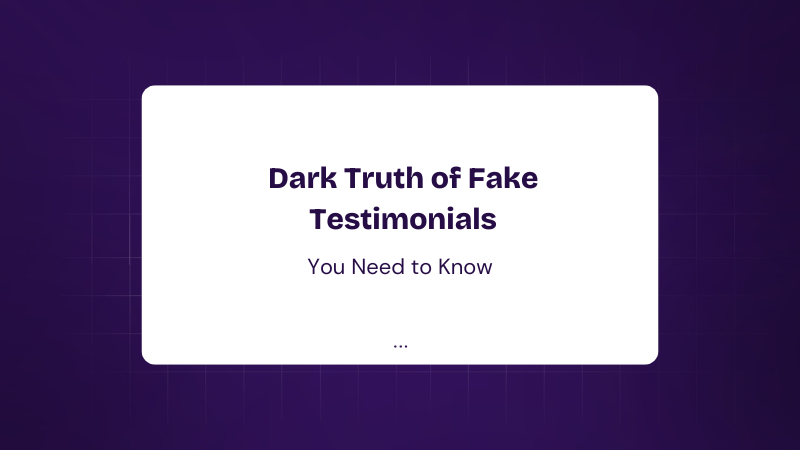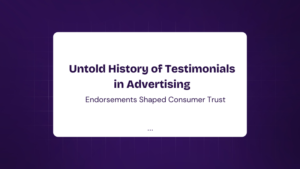Lies, Lawyers, and Testimonials – Oh My!
Imagine you’re on the internet, looking for a good restaurant, a lawyer, or maybe even a miracle anti-aging cream (no judgment). You scroll through the glowing five-star testimonials, convinced that these products or services must be incredible. But wait—how do you know these testimonials are real? Could they be fake? And what if you’re in a courtroom, where someone’s testimony could make or break a case? Can they refuse to speak under testimonial privilege?
Welcome to the complex world of testimonials—where law, trust, and deception collide. In this article, we’ll break down:
✅ What testimonial privilege is and why it matters
✅ How to evaluate the authenticity of a testimonial
✅ The not-so-secret world of fake testimonials and the risks they pose
Let’s get started!
What Is Testimonial Privilege? (And When Can You Refuse to Testify?)
Defining Testimonial Privilege
Testimonial privilege is a legal principle that allows certain individuals to refuse to testify in court under specific circumstances. The idea behind this privilege is simple: some relationships and confidential information are so crucial that forcing testimony would violate fundamental rights.
For example, imagine a wife being forced to testify against her husband. Sounds messy, right? That’s why spousal privilege exists—to protect marital trust.
Types of Testimonial Privileges
There are different types of testimonial privileges recognized in legal systems worldwide:
- Attorney-Client Privilege: Lawyers cannot be forced to reveal what their clients tell them in confidence.
- Doctor-Patient Privilege: Doctors must keep patient information confidential, even in court.
- Spousal Privilege: Spouses cannot be forced to testify against each other in many cases.
- Clergy-Penitent Privilege: Confessions made to religious leaders often remain confidential.
Real-World Cases of Testimonial Privilege
One of the most famous cases involving testimonial privilege was the Monica Lewinsky and Bill Clinton scandal. Lewinsky’s conversations with her former co-worker Linda Tripp were secretly recorded—raising legal debates about privacy and privilege.
Similarly, in United States v. Nixon (1974), President Richard Nixon attempted to use executive privilege to avoid turning over White House tapes. The Supreme Court, however, ruled that privilege is not absolute, especially in criminal investigations.
This brings us to an important question—when does testimonial privilege NOT apply? Well, if the information is crucial to a case (like in child abuse or fraud cases), courts may force disclosure.
Now that we know about testimonial privilege in court, let’s shift gears—how do we evaluate regular testimonials in everyday life?
How to Evaluate the Authenticity of a Testimonial
The Rise of Fake Reviews & Testimonials
Ever bought something online based on glowing reviews, only to be completely disappointed? You’re not alone! Studies show that at least 30-40% of online reviews could be fake.
According to a 2021 report by FakeSpot, Amazon alone had over 42% fake reviews in certain product categories. And it’s not just Amazon—fake testimonials plague everything from law firms to healthcare providers.
Red Flags of Fake Testimonials
Here’s how you can spot a fake testimonial:
🚩 Over-the-Top Praise – If a review sounds too good to be true (“This changed my life in 24 hours!!”), it probably is.
🚩 Lack of Specifics – Real testimonials provide details. Fake ones are vague (“Great service! Highly recommend!”).
🚩 Repetitive Language – Bots often reuse the same phrases across multiple testimonials.
🚩 Unusual Review Patterns – If a business gets 100 glowing reviews overnight, something is fishy.
🚩 Stock Photos & Fake Names – Some websites use AI-generated faces or stolen images for testimonials.
Tools to Verify Testimonials
Thankfully, you don’t need to be a detective to verify a testimonial. Try these methods:
✔ Google Reverse Image Search – Check if a reviewer’s profile photo appears elsewhere.
✔ FakeSpot or ReviewMeta – These tools analyze online reviews for suspicious patterns.
✔ Check Multiple Sources – Don’t trust testimonials from just one website—cross-check on third-party sites.
While spotting fake testimonials is crucial, the bigger question is—why do people create them in the first place? That’s where things get even murkier.
The Dark Side: The Truth About Fake Testimonials
Why Do People Use Fake Testimonials?
Fake testimonials are big business. Whether it’s a small e-commerce store or a multi-million-dollar law firm, companies use them to:
💰 Boost credibility and sales – More positive reviews = higher profits.
📈 Improve search rankings – Fake reviews manipulate Google and Amazon algorithms.
🤥 Cover up negative feedback – Some businesses flood their profiles with fake praise to bury real complaints.
The Legal & Ethical Risks of Fake Testimonials
Fake testimonials aren’t just unethical—they’re illegal in many places.
In the United States, the Federal Trade Commission (FTC) enforces strict laws against misleading endorsements. Companies caught using fake testimonials can face hefty fines.
For example, in 2019, Sunday Riley, a skincare brand, was fined for posting fake Sephora reviews written by employees.
In Europe, under consumer protection laws, businesses using fake testimonials can face lawsuits and bans.
The Consequences of Getting Caught
If a company is exposed for using fake testimonials, here’s what happens:
- Reputation Damage – Customers lose trust, and competitors take advantage.
- Legal Trouble – Companies can be sued for deceptive marketing practices.
- Financial Losses – Fines, refunds, and class-action lawsuits can cost millions.
So, the next time you see a suspicious testimonial, think twice before believing it.
FAQs
Is testimonial privilege the same as refusing to testify?
No. Privilege applies only in specific relationships (lawyer-client, doctor-patient, spouse, etc.). In most cases, witnesses must testify when subpoenaed.
Can a business get sued for fake testimonials?
Yes. The FTC and consumer protection agencies penalize businesses that use false testimonials.
How can I report a fake testimonial?
If you spot fake reviews on sites like Amazon or Yelp, you can report them directly. The FTC also accepts complaints about deceptive advertising.
Are online review websites trustworthy?
Not always. Some platforms, like Trustpilot and Yelp, try to remove fake testimonials, but many still slip through.
Can AI create fake testimonials?
Yes! AI-generated fake reviews are on the rise. Some scams even use deepfake videos for endorsements.
Trust, But Verify
Whether it’s courtroom testimony or online testimonials, truth matters. While testimonial privilege protects confidentiality in legal cases, fake testimonials deceive consumers and harm businesses.
So, next time you read a glowing testimonial, ask yourself: Is it real, or is it just another scam?



